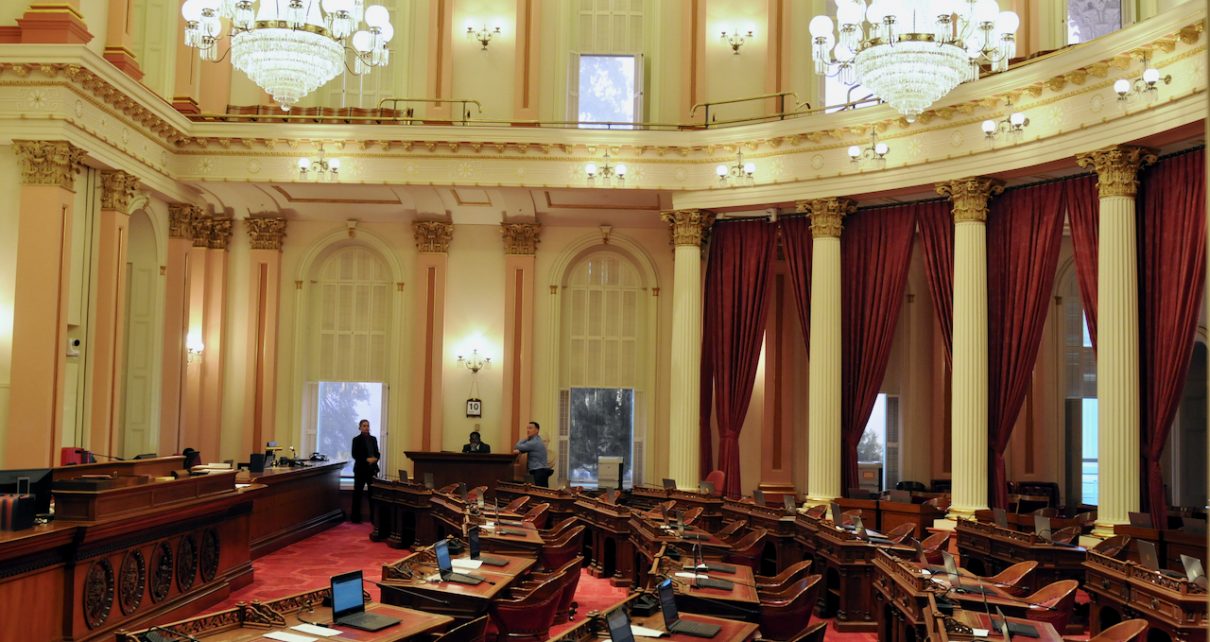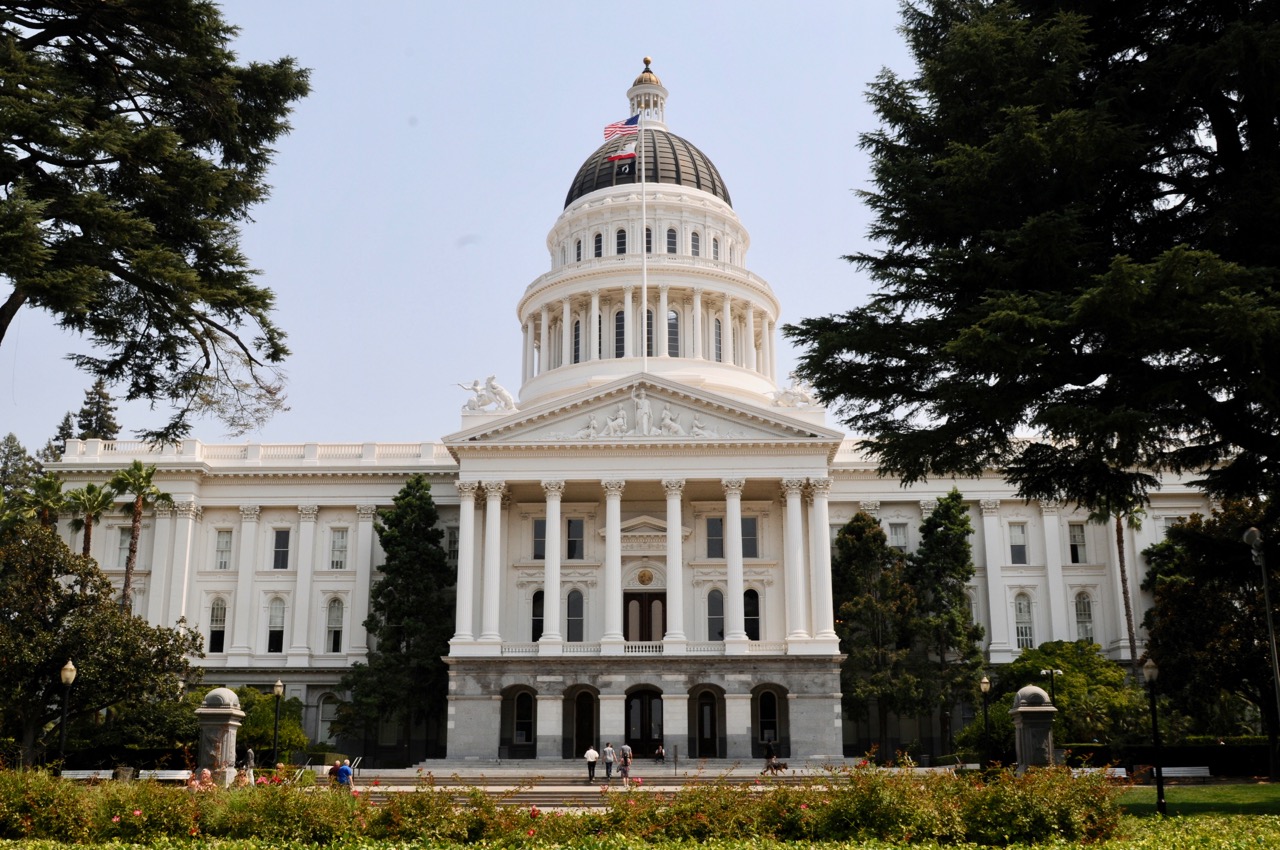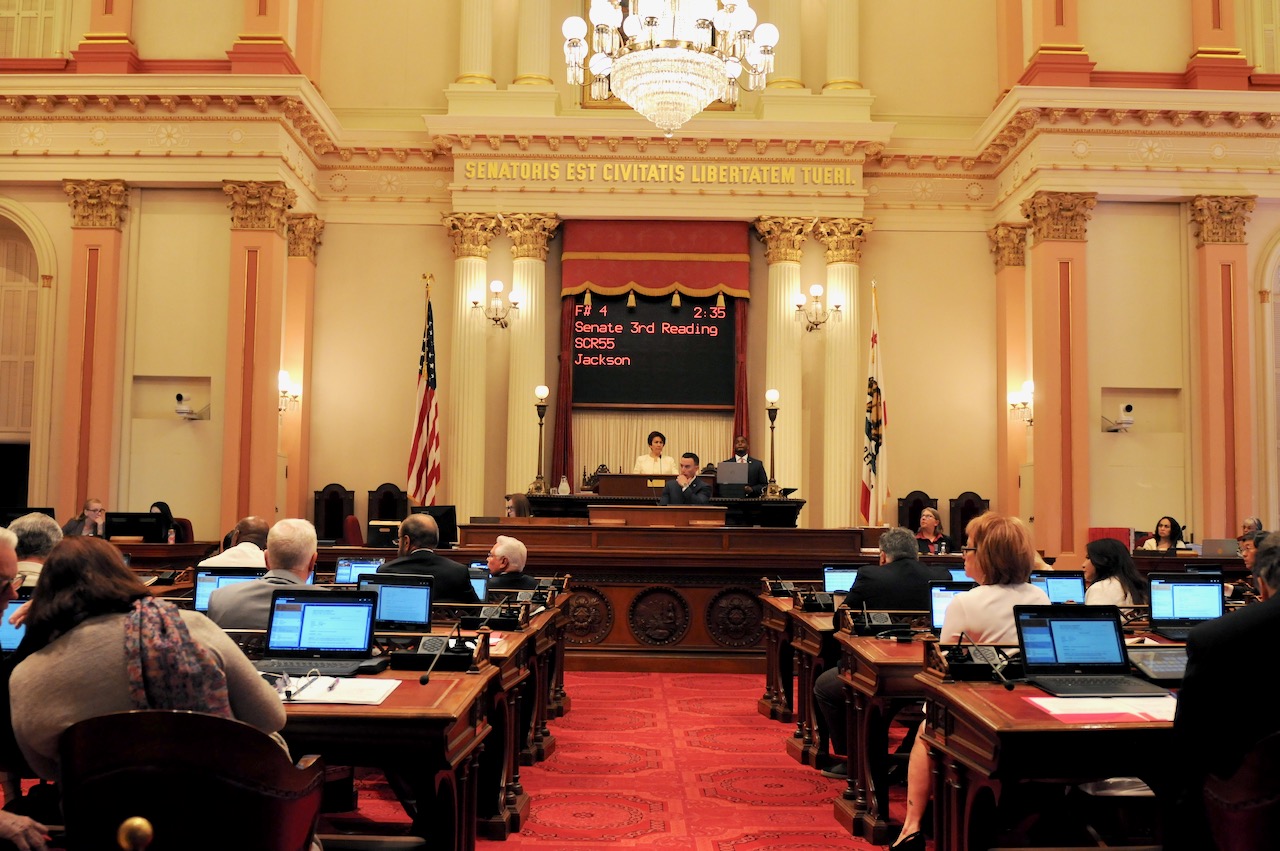
California Senate Chambers. (Photo: Kevin Sanders for California Globe)
Some Practical Notes About Special Sessions of the California Legislature
What form does a special session bill take?
By Chris Micheli, October 12, 2022 12:01 pm
With a likely special session beginning in early December when the Legislature convenes its 2023-24 Session, there are several practical items to keep in mind during special sessions of the California Legislature. For example:
What are some of the subject matters of previous special sessions?
- Balancing the state budget
- Workers’ compensation
- State pensions
- Education
- Redistricting
- Funding for prison construction
- Health care
- Water
- Tax reform
Be sure to review the Governor’s proclamation and what is the broad or narrow scope of the subject matter of the special session.
Will a special session run concurrently with the regular session?
As the planned special session will convene on December 5, it is anticipated to run concurrently with the regular session, meaning that it will not likely be conducted outside of the days and times that the Assembly and Senate are already meeting in regular session.
However, if the special session results in the Assembly or Senate meeting in special session on days that are not held concurrently with regular legislative session days, then additional per diem is required to be paid to Assembly Members or Senators for those additional days.
What form does a special session bill take?
It is generally written as:
BILL NUMBER: ABX1 19
As a result, the above bill is formally titled: ABX1 19 (AB 19 in the First Extraordinary Session). It can also be written as AB 19x.
In addition, at the top of each special session bill, there will be the following:
CALIFORNIA LEGISLATURE— 2023–2024 1st Ext.
This makes clear that the bill is during the upcoming 2-year legislative session, but in the First Extraordinary Session.
Otherwise, a special session bill looks like a regular session bill. It can amend, add, repeal, or do a combination of those actions to California’s Codes.
What color is the paper used for legislative publications in the first special session?
Blue.
This means that the Daily Files, Daily Journals, and Weekly Histories will be printed on blue paper, rather than the grey that is used for all regular session legislative publications.
Is there a difference between “calling” a special session and the “call” of a special session?
Yes. First, some use the term “proclaim” (e.g., proclaim a special session), rather than “call” a special session. This is because some people use the term “call” to describe the purpose of the special session. In other words, “what is the call of the special session?” essentially means, “For what purpose is the special session?” The “call” of a special session can be broad or narrow in its scope.
Second, an important aspect of the “call of the special session” is that bills can only be heard in the special session if they fall within the stated purpose of the special session. In fact, the Assembly Rules Committee and the Senate Rules Committee decide whether a bill’s subject matter is properly within the call (or jurisdiction) of the special session.
On the Senate side, a bill cannot be introduced in a special session without approval of the Senate Rules Committee. Recall that Article IV, Section 3(b) of the state Constitution provides that the Legislature “has power to legislate only on subjects specified in the [Governor’s] proclamation…”
What procedural items take place when a special session is proclaimed?
Just as with the convening of a regular session, a special session is convened with officers elected and rules adopted. There may be some differences in a few house or joint rules. Also, while all of the standing committees could be used in a special session, usually the Assembly and Senate establish one or more committees that deal with the subject matter(s) of a special session.
For example, in the First Extraordinary Session during the 2015 Legislative Session, only three committees were used in the Senate: Appropriations, Rules, and (specially named) Transportation and Infrastructure Development Committee. The same membership was used between the regular and special session committees, with a slight expansion of the jurisdiction of the regular session’s Transportation Committee.
How does a special session end?
When the business of the special session has been completed, assuming it does not continue until November 30, 2024 when the Legislature (and any pending special session) will adjourn sine die,* the Assembly and Senate will adopt a concurrent resolution that will provide that the First Extraordinary Session of the Legislature will “stand adjourned sine die at midnight on the date that this measure has been adopted by both houses of the Legislature.”
What are the rules for gubernatorial bill actions in a special session?
Regarding gubernatorial action, Article IV, Section 10(b)(4) provides: “If the Legislature by adjournment of a special session prevents the return of a bill with the veto message, the bill becomes a statute unless the Governor vetoes the bill within 12 days after it is presented by depositing it and the veto message in the office of the Secretary of State.”
The normal 12-day rule applies to special session bills as well. In other words, the Governor has 12 days to act on a special session bill or else it becomes law without the governor’s signature. In the case with the Legislature sends a bill to the governor’s desk and then adjourns the special session, the Governor can still veto the message within the 12-day period, but returns the vetoed bill to the Secretary of State, rather than the house of origin.
What are the effective dates of special session bills?
Regarding effective dates, Article IV, Section 8(c)(1) provides: “…. a statute enacted at a special session shall go into effect on the 91st day after adjournment of the special session at which the bill was passed.” This is intended to allow a referendum to be pursued against a bill enacted in a special session (except four types of bills that are not subject to referendum).
Because of this constitutional provision, a bill enacted (absent an urgency clause, tax levy, or budget appropriation) in a special session has to wait for the special session to adjourn sine die before the 90-day clock begins. Recall that effective dates (when a new law is “on the books”) are different than operative dates (when a new law’s provisions apply).
Are there different procedural rules for bills in a special session?
Yes. Bills in a special session are not subject to many of the rules and deadlines contained in the Joint Rules of the Senate and Assembly. This includes Joint Rule 61 and 62 deadlines, as well as file notice requirements.
*Sine Die is a Latin term that means, “without day.” When a legislature adjourns sine die, it means it is the final adjournment of the assembly without a day being set for reconvening.
- Limits on Power in Eminent Domain - January 31, 2026
- Appeals in Judicial Proceedings - January 31, 2026
- Permissive Joinders in California - January 30, 2026




